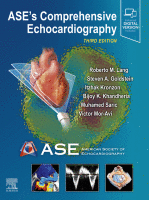Physical Address
304 North Cardinal St.
Dorchester Center, MA 02124

Acute rheumatic fever (ARF) is an inflammatory disorder that occurs after a throat infection with group A β-hemolytic streptococcus infection (GAS). Rheumatic heart disease (RHD) is a chronic disorder in which the heart valves are damaged after an episode of…

Approximately 93.3 million, or 39.8% of adults in the United States, are obese. It is estimated by the World Health Organization that more than 650 million adults worldwide are obese and that this number has tripled since 1975. Because of…

Epidemiology Chronic renal disease is a major public health problem. The end-stage renal disease (ESRD) population is increasing in size. More than 26 million people (13%) in the United States have chronic kidney disease (CKD), and most are undiagnosed. Another…

Pathophysiology Death and disability caused by cardiac dysfunction are among the most common complications of diabetes mellitus (DM). DM can cause pathophysiologic changes in the heart both directly, through its effects on the myocardium (e.g., through deposition of advanced glycosylation…

Systemic arterial hypertension is a major cause of cardiovascular morbidity and mortality and is the number one attributable risk factor for death throughout the world. The adverse effects of hypertension result from structural and functional changes in the heart and…

An extensive variety of operations are used to correct or palliate congenital heart disease (CHD), often cloaked in the language of acronyms and eponyms. This chapter provides simple guidance for clinicians and sonographers in deciphering this occasionally confusing area. The…

Most complex congenital heart disease (CHD) present with cyanosis in early childhood and necessitate intervention before adulthood. In contrast, adults with acyanotic complex CHD can escape detection for many decades because they often do not have major associated lesions. The…

Obstructive lesions along the outflow tracts of the right ventricle (RV) and left ventricle (LV) can be found at the level of the semilunar valve, below the valve within the subarterial outflow chamber, or above the valve along the great…

Congenital heart defects (CHDs) associated with left-to-right shunts are among the most common anomalies. The most common types of left-to-right shunt lesions include atrial septal defect (ASD), ventricular septal defect (VSD), atrioventricular septal defect (AVSD), and patent ductus arteriosus (PDA)…

To efficiently perform an echocardiographic study on an adult with congenital heart disease (CHD), it is extremely important to understand the following: (1) the role of history and natural history, (2) location of the surgical scar(s) and probable surgical repair,…